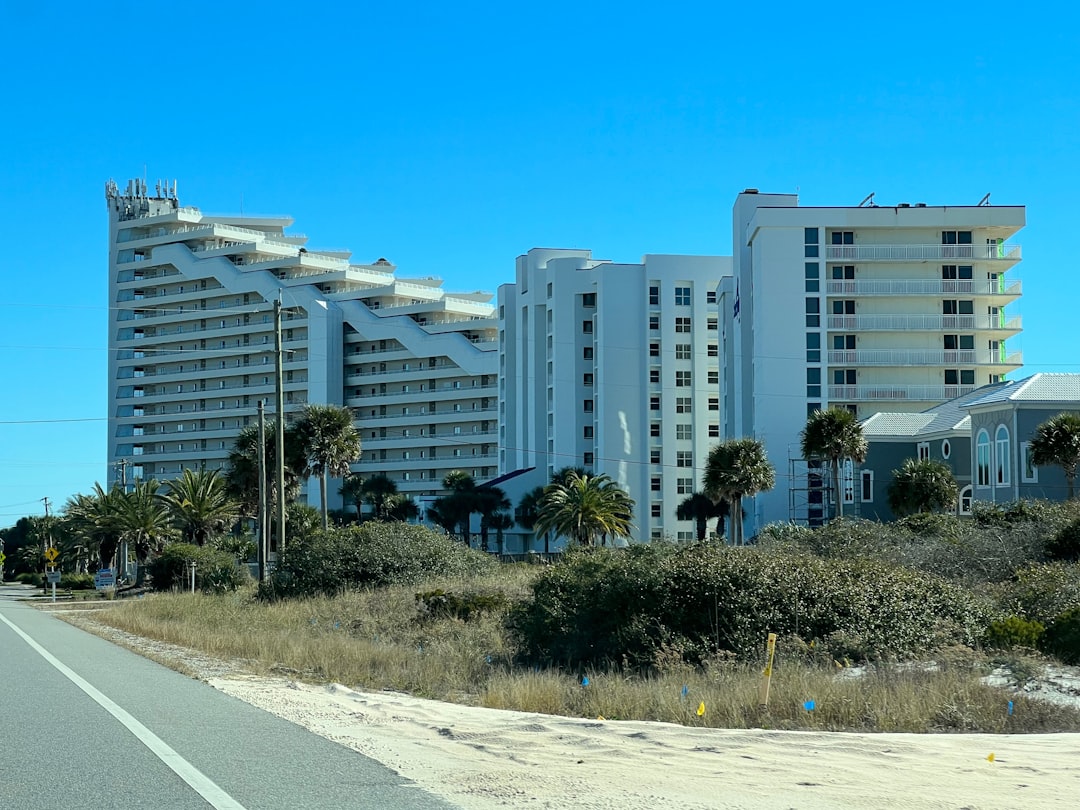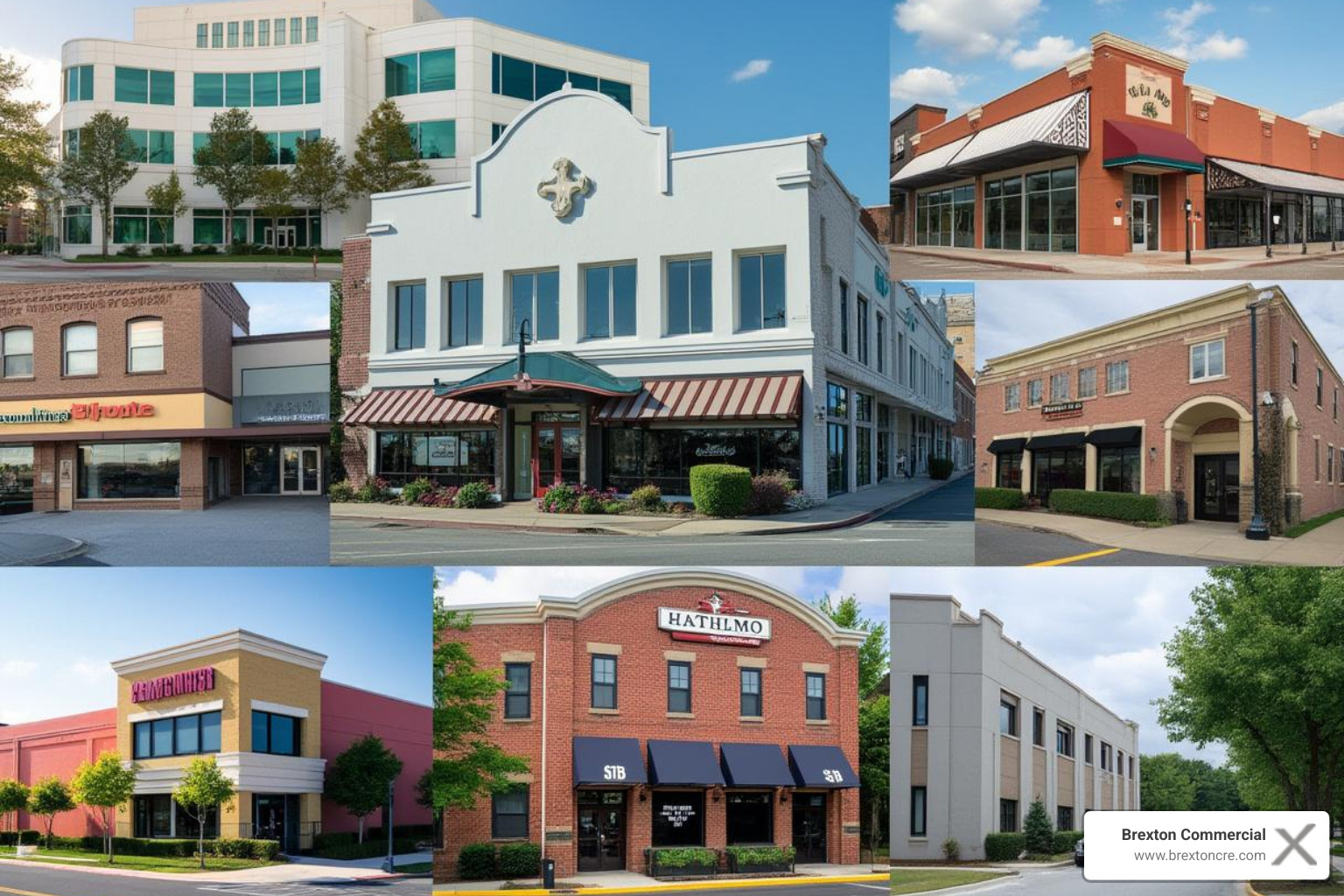Business lots for rent are an essential option for many companies looking to expand or relocate without the financial commitment of buying property. Renting provides flexibility and often comes with a range of lease options to suit different needs. Here’s why renting a business lot can be important for your company:
- Flexibility: Adapt to business changes without long-term commitment.
- Lower Initial Costs: Avoid large down payments and purchasing fees.
- Location & Accessibility: Secure prime locations that might be otherwise unaffordable.
- Lease Options: Choose from various lease types to manage costs effectively.
In the world of commercial real estate, understanding the landscape is key to making wise investment decisions. Business lots available for rent can provide a golden opportunity to tap into high-demand areas, leverage strategic locations, and minimize upfront spending.
Renting a business lot often gives companies the ability to scale quickly and enter lucrative markets without the burden of property ownership, which can free up capital for growth and innovation. Whether you're looking for a retail space in downtown Sacramento or an office in a busy city center, renting can help you find your perfect spot without the strings attached to ownership.

Essential business lots for rent terms:- land for sale annapolis md- office space for sale annapolis md
Understanding Commercial Real Estate
Commercial real estate (CRE) is all about spaces used for business activities rather than living. Think of it as the backbone of businesses, where everything from selling to manufacturing happens. Let's break it down into simple terms.
Definition and Types
Commercial real estate includes properties used for business purposes. It ranges from small shops to massive industrial complexes. Here are the main types:
Office Spaces: These are buildings where businesses set up their headquarters or local branches. They can vary from sleek skyscrapers to cozy suburban offices.
Industrial Spaces: These are used for manufacturing, warehousing, and distribution. They are typically located outside city centers.
Retail Units: These include shopping malls, strip malls, or standalone stores where goods and services are sold directly to consumers.
Each type serves a unique purpose and caters to different business needs.
Business Purposes
Businesses use commercial real estate for various reasons:
Offices: Companies rent office spaces to conduct their daily operations. This might include everything from meetings to employee workspaces.
Industrial Uses: Manufacturers and logistics companies need large spaces to produce goods or store products before distribution.
Retail: Stores rent retail spaces to sell products directly to customers. Location is key here, as high-traffic areas can boost sales.

Why It Matters
Understanding commercial real estate is crucial for businesses looking to rent space. Each type of property comes with different benefits and considerations. For instance, an office in a downtown area might command higher rents but offer prestige and accessibility. On the other hand, an industrial space in a suburban area might be cost-effective but require transportation logistics.
Choosing the right type of business lot for rent aligns with your business goals, whether it's attracting foot traffic or optimizing operations.
This understanding sets the foundation for making informed decisions about leasing or owning property, which we will explore further in the next section.
Pros and Cons of Leasing vs. Owning Business Lots
When it comes to securing a business lot for rent, you have two main options: leasing or owning. Each choice has its own set of advantages and drawbacks, which can significantly impact your business.
Pros of Leasing
Flexibility: Leasing offers greater flexibility. If your business is growing or if you're uncertain about future needs, leasing allows you to adapt more easily. As one executive noted, leasing is ideal for businesses that are "still in the building phase" or new to a market area.
Lower Initial Costs: Leasing typically requires less upfront capital compared to buying. This can be beneficial if "capital is tight" or if you prefer to invest your funds elsewhere.
Shorter Commitment: With leasing, you aren't locked into a long-term commitment. This is helpful if market conditions are unstable, allowing you to adjust your strategy every few years.
Maintenance and Repairs: Often, the landlord is responsible for major maintenance and repairs, reducing your operational headaches.
Cons of Leasing
Lack of Control: As a tenant, you have less control over the property. Changes or upgrades often require landlord approval.
No Equity: Leasing doesn't build equity. Once your lease ends, you have no ownership stake in the property.
Potential Rent Increases: Leases can come with the risk of rising rents, which could affect your business's financial stability.
Pros of Owning
Equity Building: Owning a property allows you to build equity over time. This can be a financial asset if property values rise.
Control: Ownership gives you full control over the property. You can customize the space to fit your business needs without seeking approval.
Potential Income: If your business space is larger than needed, you can lease out extra space to other businesses, providing an additional income stream.
Tax Benefits: Ownership can offer tax advantages, though it's wise to consult with an accountant to understand these fully.
Cons of Owning
High Initial Costs: Buying a property requires a significant upfront investment, which might not be feasible for all businesses.
Less Flexibility: Owning ties you to a location. If your business needs change, selling or leasing the property can be time-consuming and costly.
Maintenance Responsibility: As an owner, you're responsible for all maintenance and repairs, which can be costly and time-consuming.
Decision Factors
Deciding between leasing and owning depends on several factors:
Business Growth: If you're uncertain about growth, leasing might be the safer choice.
Financial Situation: Consider your capital and whether you can afford the upfront costs of buying.
Market Conditions: In a stable market, owning can be a good long-term investment. In uncertain times, leasing might offer more peace of mind.
Control Needs: If customizing the space is crucial, owning gives you that freedom.
Choosing between leasing and owning a business lot for rent should align with your business goals and financial situation. This decision is a critical step in finding the best business lots, which we'll explore in the next section.
How to Find the Best Business Lots for Rent
Finding the perfect business lot for rent can be a game-changer for your company. Here’s how to make the search easier and more effective.
Search Strategies
Start with a clear idea of what you need. Consider factors like size, location, and budget. Once you have a checklist, you can begin your search.
Online Platforms: Websites like Brexton Commercial offer a wide range of commercial real estate listings. They provide detailed information about available spaces, including size, location, and lease terms. Use filters to narrow down options that meet your criteria.
Local Agents: Real estate agents familiar with the area can offer invaluable insights. They know the market trends and can help identify properties that might not be listed online. Their expertise can also assist in negotiating favorable lease terms.
Property Visits
Once you have a shortlist, visiting the properties is crucial. Pictures and descriptions can be misleading, so a personal visit helps you see the space’s potential and any drawbacks.
Checklist for Visits: Bring a checklist of your requirements. Note the condition of the building, available amenities, and the surrounding area. Check for adequate parking and ease of access for clients and employees.
Talk to Tenants: If possible, speak with current tenants. They can provide honest feedback about the property and management. This can reveal issues you might not notice during a quick visit.
Making the Decision
After gathering all the information, compare your options. Create a simple table to list the pros and cons of each property.
| Property Address | Lease Price | Square Footage | Key Features | Potential Drawbacks |
|---|---|---|---|---|
| 8211 Bruceville Rd | $1.25/SF/MO | 7,790 SF | High Traffic | Limited Parking |
| 2100 Arden Way | $- | 13,230 SF | Central Location | Older Building |
| 2310 Watt Ave | $1.00-$3.00/SF/MO | 200,634 SF | Large Space | Higher Rent |
This approach will help you weigh the options and make an informed decision.
By using these strategies, you can find the best business lot for rent that meets your needs and helps your business thrive. Next, we will explore the key considerations when renting business lots, focusing on lease terms, location, and amenities.
Key Considerations When Renting Business Lots
Renting a business lot involves more than just finding a space. It's crucial to consider several factors to ensure the lot aligns with your business needs and budget. Here's what you should focus on:
Lease Terms
Understanding the lease terms is foundational. Leases can vary significantly in length and flexibility. Some may offer short-term options, while others require long-term commitments.
Lease Duration: Short-term leases provide flexibility, which is great for startups or businesses expecting changes. Long-term leases often come with better rates but less flexibility.
Renewal Options: Look for renewal terms. Ensure you have the option to extend the lease if the location works well for your business.
Breakaway Costs
Breakaway costs, or early termination fees, can be a financial burden if you need to exit the lease early. Always check:
Exit Clauses: Understand the penalties for breaking the lease early. Knowing these upfront helps avoid unexpected expenses.
Negotiation: Sometimes, you can negotiate these terms. It’s worth discussing with the landlord to see if there's room for flexibility.
Location
Location is key for visibility and accessibility. A prime location can attract more customers and make commuting easier for employees.
Traffic and Accessibility: High-traffic areas can boost business, but also come with higher rent. Ensure the location is accessible for both clients and staff.
Proximity to Amenities: Nearby amenities like restaurants, banks, and public transport can improve the convenience for everyone involved.
Size
The size of the lot should suit your current needs and potential growth.
- Current Needs vs. Future Growth: Ensure the space is adequate not just for now, but also for future expansion. It’s often more cost-effective to choose a slightly larger space than to move again soon after.
Amenities
Amenities can add value to the space and improve the working environment.
Parking: Adequate parking is essential, especially if clients visit regularly. Lack of parking can deter customers and frustrate employees.
Facilities: Consider what facilities are provided, such as security, HVAC systems, or shared meeting rooms. These can significantly impact your comfort and productivity.
Budget
Finally, your budget will determine what you can realistically afford.
Total Costs: Don’t just look at the rent. Consider all associated costs, including utilities, maintenance, and any shared expenses.
Price per Square Foot: Compare the price per square foot to other properties in the area to ensure you're getting a fair deal.
By paying attention to these considerations, you can make a wise choice when renting a business lot. Next, we’ll dive into practical tips for negotiating your next commercial lease, ensuring you secure the best terms possible.
10 Tips for Your Next Commercial Lease
Securing the right business lot for rent can make a big difference for your business. Whether you're opening a new location or expanding, understanding the ins and outs of commercial leases is crucial. Here are 10 practical tips to help you steer the process:
1. Understand Essential Terms
Before signing anything, understand the essential terms of the lease. This includes the rent amount, due dates, and lease period. Make sure these are clearly stated in the agreement to avoid any surprises later on.
2. Negotiate Like a Pro
Negotiation is key to securing favorable lease terms. Approach negotiations with a clear understanding of your needs and potential compromises. Landlords often expect negotiations, so don’t shy away from asking for better terms.
3. Seek Legal Advice
Consult a lawyer who specializes in commercial real estate. They can help you understand complex legal language and ensure there are no hidden clauses that could harm your business. Having legal advice can save you from costly mistakes.
4. Know the Lease Price
Calculate the total lease price, including any additional costs like maintenance or utilities. Use the price per square foot as a comparison tool to evaluate different properties. This helps ensure you're getting a fair deal.
5. Consider Square Footage
The size of your space should match your business needs. Too small, and you may outgrow it quickly. Too large, and you might be wasting money on unused space. Think about both current needs and future growth.
6. Review Breakaway Costs
Know the costs associated with breaking the lease early. These breakaway costs can be significant, so understanding them upfront is critical. You might be able to negotiate these terms to protect your business.
7. Include Additional Provisions
Ensure the lease includes all necessary provisions, like subletting options or insurance requirements. Avoid clauses that might require you to pay for major property renovations, like roof repairs or parking lot maintenance.
8. Evaluate Location and Accessibility
A prime location can improve visibility and foot traffic, but it often comes with a higher price tag. Weigh the benefits against the costs and consider factors like proximity to public transport and customer accessibility.
9. Learn from Neighbors
Talk to neighboring businesses to get insights about the area and the landlord. They can provide valuable information about local traffic, potential issues, and even crime rates. This can help you make an informed decision.
10. Use a Broker
Hiring a commercial real estate broker can be a wise move. Brokers have market knowledge and can help you find the best properties, negotiate terms, and handle paperwork. They can save you time and stress.
By keeping these tips in mind, you can secure a commercial lease that aligns with your business goals and budget. Next, we'll address some common questions about business lots for rent, providing further insights into the leasing process.
Frequently Asked Questions about Business Lots for Rent
What is the average cost of renting a business lot?
The cost of renting a business lot varies widely depending on several factors, including location, size, and amenities. In areas like Baltimore, MD, rental prices can range from $1.00 to $4.69 per square foot per month. For example, spaces in Downtown Baltimore might be pricier due to their prime location, with rates like $2.65 to $4.69/SF/MO at properties such as 630 K Street.
Location is a key factor affecting price. High-traffic areas or those near public transportation tend to have higher rates. Properties in suburban or less accessible areas might offer lower costs but could come with trade-offs in visibility or foot traffic.
How do I negotiate a commercial lease?
Negotiating a commercial lease can seem daunting, but with the right approach, you can secure favorable terms. Here are some practical negotiation tips:
Research Comparable Rates: Before negotiations, research similar properties to understand the going rate per square foot. This helps in making a strong case for a lower rate if the asking price is above average.
Identify Your Needs: Clearly define what you need from the lease, including lease length, renewal options, and any specific terms like maintenance responsibilities.
Ask for Concessions: Landlords often expect negotiations, so don’t hesitate to ask for concessions like reduced rent for the initial months, free parking, or improvements to the space.
Engage a Professional: Consider hiring a real estate broker or legal advisor. They can bring expertise to the table and help negotiate terms that protect your interests.
What should I look for in a commercial lease agreement?
When reviewing a commercial lease agreement, focus on these essential terms:
Lease Duration and Renewal Options: Ensure the lease term aligns with your business plans and includes options for renewal if needed.
Breakaway Costs: Understand any penalties for breaking the lease early. These costs can be significant, so negotiate them if possible.
Maintenance and Repair Responsibilities: Clarify who is responsible for maintenance and repairs. Some leases may require tenants to handle certain repairs, which can add to costs.
Legal Clauses: Watch out for legal clauses that could impact your business, such as exclusivity clauses (limiting who can lease nearby) or relocation clauses (allowing the landlord to move your business within the property).
Subletting and Assignment: If you might need to sublease the space or transfer the lease, ensure these options are permitted in the agreement.
By understanding these elements, you can make informed decisions and avoid potential pitfalls in your lease agreement.
Next, we’ll explore how to find the best business lots for rent, offering tips on search strategies and the role of local agents.
Conclusion
In navigating business lots for rent, weigh all the factors—from location to lease terms—to make an informed decision. Whether you're looking for a retail space in a busy downtown area or a quieter office in the suburbs, understanding your needs and options is key.
At Brexton Commercial, we pride ourselves on offering a personalized approach to commercial real estate. Our expertise in the Mid-Atlantic region allows us to provide custom solutions that meet the unique needs of each client. With our hands-on approach, we focus on delivering value and ensuring that your business finds the perfect location to thrive.
Our team combines market knowledge and negotiation skills to secure favorable lease terms, whether you're expanding, relocating, or opening a new business. By partnering with us, you gain access to a network of regional and national credit tenants, enhancing your property's potential.
If you're ready to explore business lots in Annapolis or anywhere in the Mid-Atlantic, find more about our services and how we can assist you in finding the ideal space for your business.
In summary, securing a business lot for rent is a significant step for any business. With the right guidance and resources, you can find a space that not only fits your budget but also supports your business goals. Let Brexton Commercial be your trusted partner in this journey.




